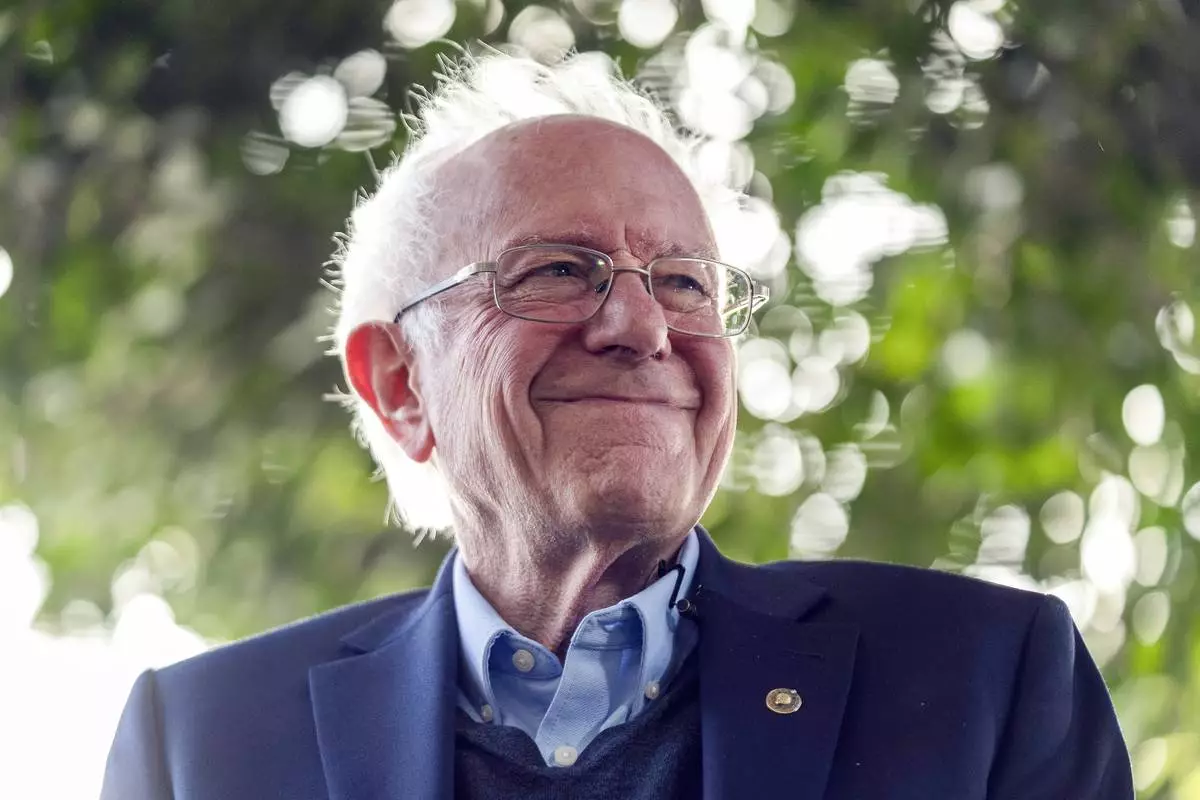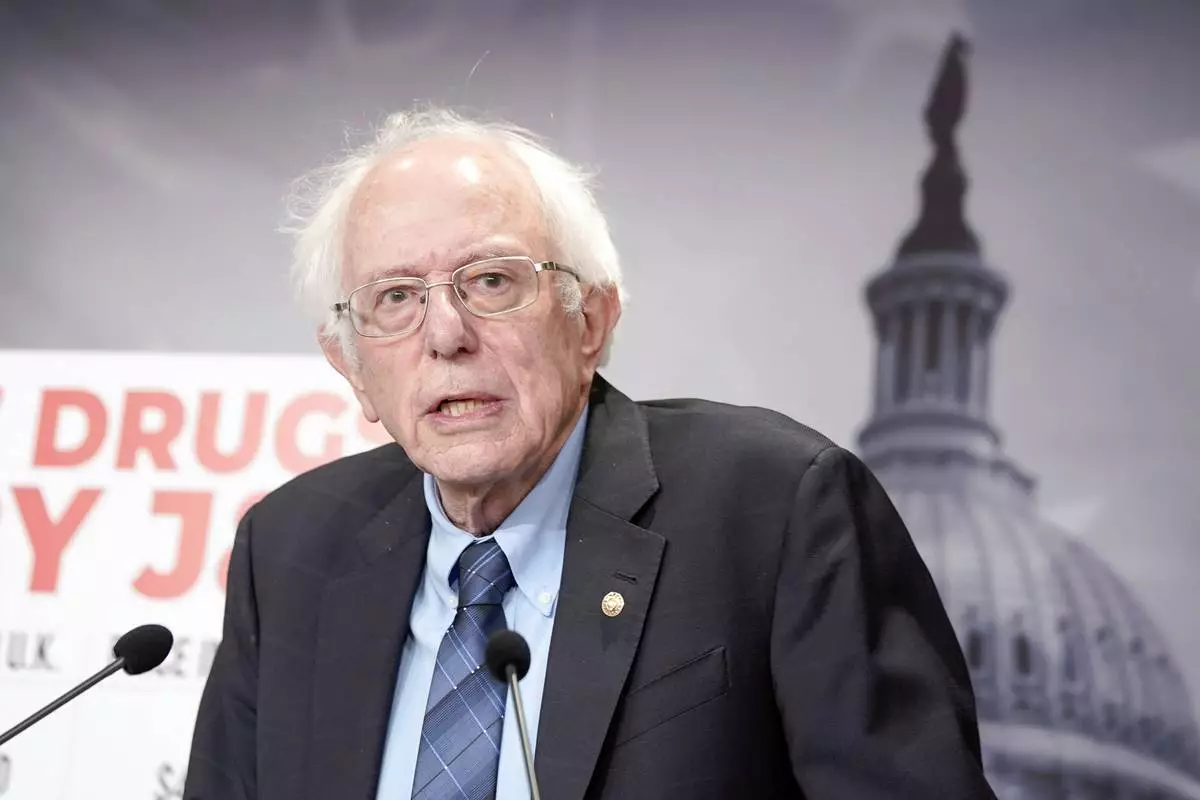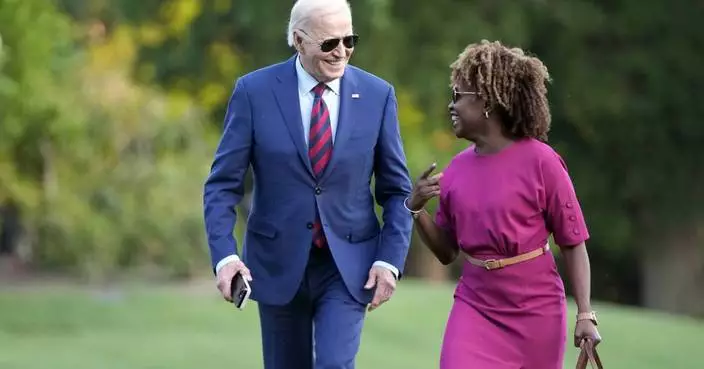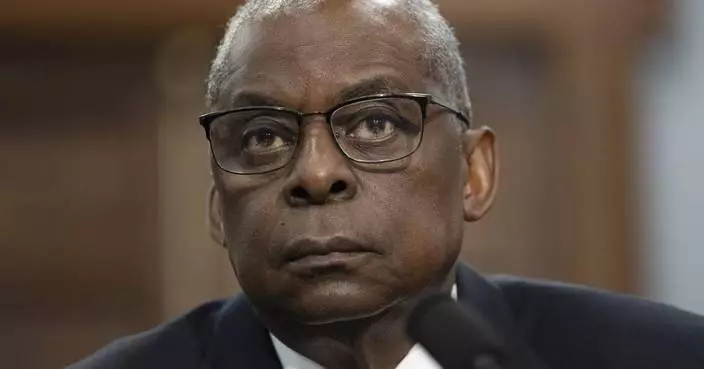Chris Kraft, who created NASA's Mission Control and made split-second white-knuckle decisions from the first daring Mercury mission to the triumphant moon landings, has died. He was 95.
Kraft died Monday in Houston, NASA said. It was just two days after the 50th anniversary of the Apollo 11 moon landing.
Christopher Columbus Kraft Jr. never flew in space, but "held the success or failure of American human spaceflight in his hands," Neil Armstrong, the first man-on-the-moon, told The Associated Press in 2011.
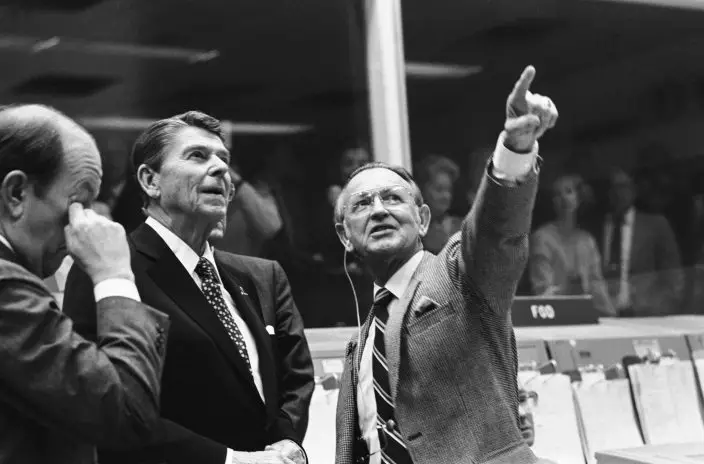
In this Nov. 13, 1981, photo provided by NASA, President Ronald Reagan is briefed by Johnson Space Center Director Christopher C. Kraft Jr., who points toward the orbiter spotter on the projection plotter in the front of the mission operations control room in Johnson Space Center's Mission Control Center, in Houston. This picture was taken just prior to a space-to-ground conversation between STS-2 crew members Joe H. Engle and Richard H. Truly, who were orbiting Earth in the space shuttle Columbia. Kraft, the founder of NASA's mission control, died Monday, July 22, 2019, just two days after the 50th anniversary of the Apollo 11 moon landing. He was 95. (NASA via AP)
Kraft founded Mission Control and created the job of flight director — later comparing it to an orchestra conductor — and established how flights would be run as the space race between the U.S. and Soviets heated up. The legendary engineer served as flight director for all of the one-man Mercury flights and seven of the two-man Gemini flights, helped design the Apollo missions that took 12 Americans to the moon from 1969 to 1972 and later served as director of the Johnson Space Center until 1982, overseeing the beginning of the era of the space shuttle.
Armstrong once called him "the man who was the 'Control' in Mission Control."
"From the moment the mission starts until the moment the crew is safe on board a recovery ship, I'm in charge," Kraft wrote in his 2002 book "Flight: My Life in Mission Control."

In this Nov. 13, 1981, photo provided by NASA, President Ronald Reagan is briefed by Johnson Space Center Director Christopher C. Kraft Jr., who points toward the orbiter spotter on the projection plotter in the front of the mission operations control room in Johnson Space Center's Mission Control Center, in Houston. This picture was taken just prior to a space-to-ground conversation between STS-2 crew members Joe H. Engle and Richard H. Truly, who were orbiting Earth in the space shuttle Columbia. Kraft, the founder of NASA's mission control, died Monday, July 22, 2019, just two days after the 50th anniversary of the Apollo 11 moon landing. He was 95. (NASA via AP)
"No one can overrule me. ... They can fire me after it's over. But while the mission is under way, I'm Flight. And Flight is God."
NASA Administrator Jim Bridenstine Monday called Kraft "a national treasure," saying "We stand on his shoulders as we reach deeper into the solar system, and he will always be with us on those journeys."
Kraft became known as "the father of Mission Control" and in 2011 NASA returned the favor by naming the Houston building that houses the nerve center after Kraft.
"It's where the heart of the mission is," Kraft said in an April 2010 AP interview. "It's where decisions are made every day, small and large ... We realized that the people that had the moxie, that had the knowledge, were there and could make the decisions."
That's what Chris Kraft's Mission Control was about: smart people with knowledge discussing options quickly and the flight director making a quick, informed decision, said former Smithsonian Institution space historian Roger Launius. It's the place that held its collective breath as Neil Armstrong was guiding the Eagle lunar lander on the moon while fuel was running out. And it's the place that improvised a last-minute rescue of Apollo 13 — a dramatic scenario that later made the unsung engineers heroes in a popular movie.
"It was a wonderful life. I can't think of anything that an aeronautical engineer would get more out of, than what we were asked to do in the space program, in the '60s," Kraft said on NASA's website marking the 50th anniversary of the agency in 2008.
In the early days of Mercury at Florida's Cape Canaveral, before Mission Control moved to Houston in 1965, there were no computer displays, "all you had was grease pencils," Kraft recalled. The average age of the flight control team was 26; Kraft was 38.
"We didn't know a damn thing about putting a man into space," Kraft wrote in his autobiography. "We had no idea how much it should or would cost. And at best, we were engineers trained to do, not business experts trained to manage."
NASA trailed the Soviet space program and suffered through many failed launches in the early days, before the manned flights began in 1961. Kraft later recalled thinking President John F. Kennedy "had lost his mind" when in May 1961 he set as a goal a manned trip to the moon "before this decade is out."
"We had a total of 15 minutes of manned spaceflight experience, we hadn't flown Mercury in orbit yet, and here's a guy telling me we're going to fly to the moon. ... Doing it was one thing, but doing it in this decade was to me too risky," Kraft told AP in 1989.
"Frankly it scared the hell out of me," he said at a 2009 lecture at the Smithsonian.
One of the most dramatic moments came during Scott Carpenter's May 1962 mission as the second American to orbit the earth. Carpenter landed 288 miles off target because of low fuel and other problems. He was eventually found safely floating in his life raft. Kraft blamed Carpenter for making poor decisions. Tom Wolfe's book "The Right Stuff" said Kraft angrily vowed that Carpenter "will never fly for me again!" But Carpenter said he did the best he could when the machinery malfunctioned.
After the two-man Gemini flights, Kraft moved up NASA management to be in charge of manned spaceflight and was stunned by the Apollo 1 training fire that killed three astronauts.
Gene Kranz, who later would become NASA's flight director for the Apollo mission that took man to the moon, said Kraft did not at first impress him as a leader. But Kranz eventually saw Kraft as similar to a judo instructor, allowing his student to grow in skills, then stepping aside.
"Chris Kraft had pioneered Mission Control and fought the battles in Mercury and Gemini, serving as the role model of the flight director. He proved the need for real-time leadership," Kranz wrote in his book, "Failure Is Not An Option: Mission Control from Mercury to Apollo 13 and Beyond."
NASA eventually beat Kennedy's deadline, landing the first men on the moon in July 1969. Kranz watched from Mission Control as his underlings controlled Apollo 11, but then for the near-disaster in flight on Apollo 13, he stepped in for the key decisions. He later became head of NASA's Johnson Space Center.
Born in 1924, Kraft grew up in Phoebus, Va., now part of Hampton, about 75 miles southeast of Richmond. In his autobiography, Kraft said with the name Christopher Columbus Kraft Jr., "some of my life's direction was settled from the start."
After graduating from Virginia Polytechnic Institute in 1944, Kraft took a job with aircraft manufacturer Chance Vought to build warplanes, but he quickly realized it wasn't for him. He returned to Virginia where he accepted a job with the National Advisory Committee for Aeronautics, not far from Phoebus.
Kraft's first job was to figure out what happens to airplanes as they approach the speed of sound.
After his retirement, Kraft served as an aerospace consultant and was chairman of a panel in the mid-1990s looking for a cheaper way to manage the shuttle program. Kraft's panel recommended a contractor take over the day-to-day operations of the shuttle.
Later, as the space shuttle program was being phased out after 30 years, Kraft blasted as foolish the decision to retire the shuttles, which he called "the safest machines ever built." He said President Barack Obama's plan to head toward an asteroid and Mars instead of the moon was "all hocus-pocus."
Kraft said he considered himself fortunate to be part of the team that sent Americans to space and called it a sad day when the shuttles stopped flying.
"The people of Mercury, Gemini, and Apollo are blossoms on the moon. Their spirits will live there forever," he wrote. "I was part of that crowd, then part of the leadership that opened space travel to human beings. We threw a narrow flash of light across our nation's history. I was there at the best of times."
Kraft and his wife, Betty Anne, were married in 1950. They had a son, Gordon, and a daughter, Kristi-Anne.



